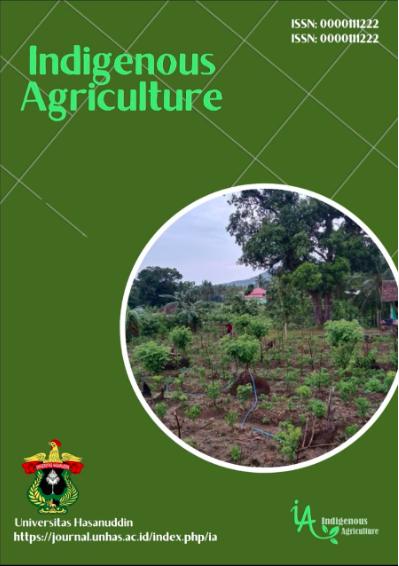Main Article Content
Abstract
The potential of Indonesian marine and Indonesian fisheries is so great, especially now that this potential has been supported by various program policies and development activities in the marine and fisheries sector, however, in line with such rapid changes in all fields both on an international and national scale, the program policies and development activities of the marine and fisheries sector require adjustments or changes in order to meet economic needs that are more focused on improvement of people's welfare. Supporting the role of local institutions in marketing seaweed which is one of the marine resource commodities that has high economic value, is easy to cultivate and relatively low production costs. Therefore, this study aims to find out what is the role of local institutions in seaweed marketing. The data analysis technique used is qualitative analysis whose analytics are interpretive and interpretive understanding or verstehen. The qualitative definition here means that the data presented is in the form of words into the form of expanded text instead of numbers Data from interviews and observations are written in a detailed field note and then analyzed qualitatively. To obtain accurate data. The results showed that the role of local institutions in terms of seaweed marketing, namely formal institutions, especially cooperatives, has not been well institutionalized among the community in Jeneponto Regency because there is still a lack of farmers who are interested in participating in the cooperative, for non-formal institutions only in marketing activities. So that local institutions in Jeneponto district, both formal and informal, have not been able to fully support seaweed cultivation activities, especially in seaweed marketing.
Keywords
Local Institutions, Seaweed Marketing, Local Government, Local Farmers
Article Details

This work is licensed under a Creative Commons Attribution-ShareAlike 4.0 International License.

